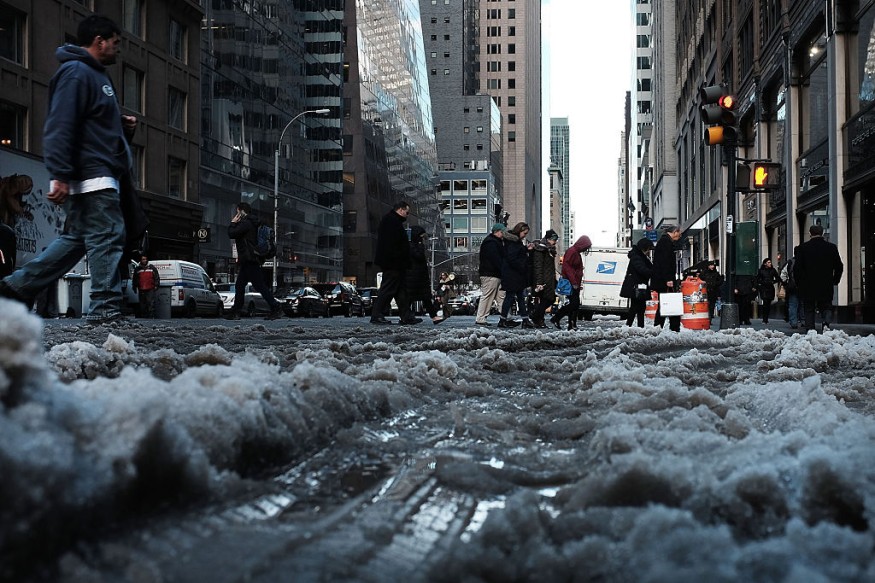The warmer winter conditions in the Northern Plains and Upper Midwest resulted in widespread loss, reaching over $8 billion, due to impacts on seasonal activities and businesses. The cold weather was essential to many businesses that usually open during the winter conditions, and the warming trend could have led to economic damages.
In a NOAA report, the country recorded the warmest winter conditions on record, with February reaching the third-warmest outlook. Experts reported record-warm and mild conditions in February, particularly in areas in Wisconsin, Missouri, Iowa and Minnesota.
In the Great Lakes, persistent warmer winters caused the decline of ice coverage in the region. In terms of the meteorological winter, it recorded the warmest winter on record, with temperatures reaching on average 37.6 degrees F.
While the warmer conditions saved households from the high costs of electricity and snow removal, it caused devastating impacts on business in the northern Plains and Upper Midwest, particularly for businesses opening during winter conditions.
Warmer Winter Impacts on Northern Plains and Upper Midwest

According to a recent report, the warmest on record, with temperature rankings from December 1, 2023, to March 31, 2024, occurred in Fargo, International Falls, Minneapolis, Des Moines, Green Bay, Chicago, Alpena, Detroit, Cleveland, and Detroit.
Meanwhile, parts of Minnesota, Wisconsin, and North Dakota recorded challenging winter temperatures. In the Northern Plains and Upper Midwest, the report raised concerns about the mild winter conditions, resulting in significant economic impact.
Seasonal business activities, like ice castle festivals, ice skating, and other outdoor activities were essentially affected due to the warmer winter brought by high temperatures. The lack of ice had become the main concern, particularly for ice resorts, which could also resort to artificial snow to continue their businesses.
In an AccuWeather report, the Great Lakes suffered from a decline in ice coverage and record levels. Additionally, seasonal workers were affected by the lack of cold and snow, particularly for snow removal companies.
In an estimate, a total of $8 billion in economic loss was reported in the northern Plains and Midwest. El Nino and climate change have also worsened the situation for outdoor recreation and hospitality industries, particularly in the lower 48 states.
However, the report is optimistic that the 2024-2025 winter will improve, unlike this year.
Also Read : Wildfire, Extreme Drought Can Cause Widespread Emergence of Invasive Species in California's Ecosystem
NOAA Weather Assessment
In a recent NOAA weather assessment, devastating wildfires were recorded in the Southern Plains. The 2023-2024 winter season reached the warmest on record for the contiguous in the country. Portions of the Northeast and Upper Midwest reached the warmest winter on record.
In the March report, a deadly wildfire emerged in Smokehouse Creek in the Texas Panhandle, burning millions of acres in the affected areas. Additionally, the drought in the contiguous US reached 21.6%.
Related Article : NOAA Latest Weather Assessment: February 2024 Ranks Third Warmest In Same Month On Record
For more similar stories, don't forget to follow Nature World News.
© 2025 NatureWorldNews.com All rights reserved. Do not reproduce without permission.





